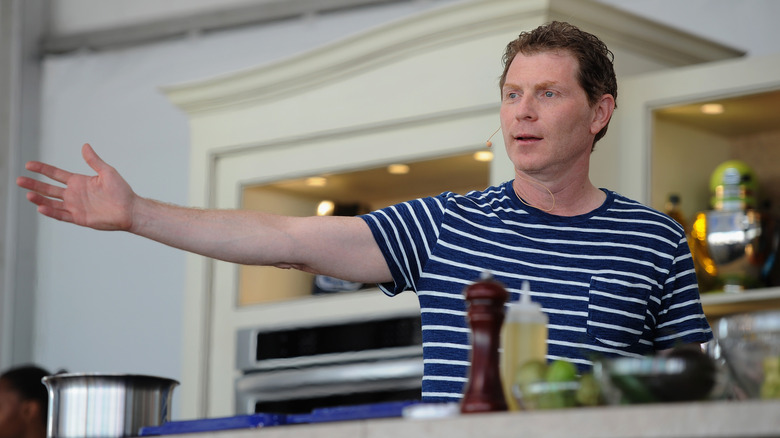What People Get Wrong About Culinary School, According To Bobby Flay
According to Eater, there are a variety of reasons you should consider going to culinary school. While students might pay upwards of $100,000 for a degree in the field, this type of training teaches chefs fundamental skills without taking any shortcuts. Plus, these institutes allow students to learn in a lower-stress environment, unlike a professional kitchen that comes with more shouting and higher pressure to perform.
On the other hand, soon-to-be chefs that go through professional programs have to face the reality that they might enter the workforce with a low starting salary and tons of student debt. In a recent episode of his podcast Always Hungry, Bobby Flay spoke about his memories of culinary school and his take on the importance of the institution. Flay points out that while anyone can go to a restaurant and learn how to create signature dishes, they don't learn about the building blocks of flavor and might face a steep uphill battle if they have to recreate a particular item from scratch or memory. Flay also emphasizes that people tend to have a common misconception about culinary school.
The misconception of culinary school
As Flay explains on his Always Hungry podcast, wannabe chefs that go through culinary school might have the presumption that they can immediately jump right into a chef position after graduating. Despite having extensive training, Flay states that the reality looks a bit more stark. Essentially, graduates leave their program with the tools for an entry-level job in a good restaurant. While some people who finish culinary school might assume they can start off as a head chef, Flay's advice kicks this idea to the curb, and nails home the reality that the individuals now have the proper intellectual tools to start at "the beginning of the beginning."
If you ever wanted to go to culinary school in the hopes of immediately jumping into a high-ranking cooking position, take Flay's advice to heart and manage your expectations. With a bit of training, anyone can go far in the field, but Flay believes it takes an equal amount of real-world experience to rise through the ranks — culinary school can't give you an automatic shortcut to the top.

